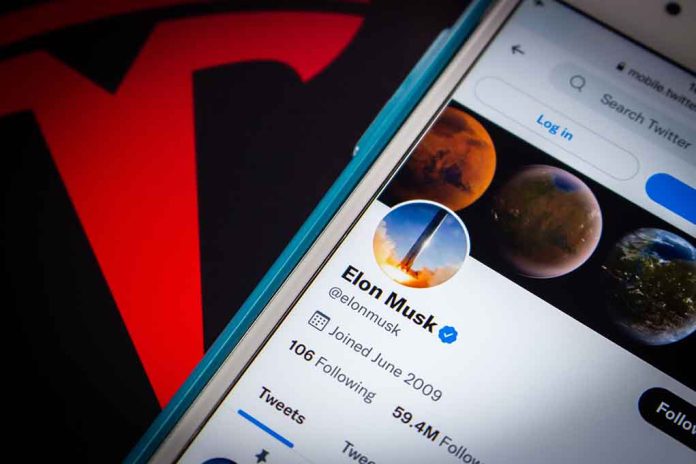
Elon Musk’s abrupt departure from the Department of Government Efficiency (DOGE) follows his public criticism of President Trump’s “big, beautiful bill,” which he believes undermines the very mission he was appointed to accomplish.
Key Takeaways
- Elon Musk has ended his role as a special government employee after reaching the 130-day limit, expressing disappointment with Trump’s spending package
- The DOGE initiative, under Musk’s leadership, claimed to have saved $175 billion through efforts to reduce federal spending
- Musk will return his focus to Tesla, SpaceX, xAI, and other business ventures while maintaining a limited presence at the White House
- Trump’s “big, beautiful bill,” increasing spending on defense while cutting other programs, faces opposition from fiscal conservatives and prompted Musk’s critique
- Speculation of a growing rift between Musk and Trump has emerged as Musk’s presence in Trump’s circle has noticeably decreased
Musk Exits Government Role Amid Policy Disagreements
Elon Musk has officially stepped down from his position as head of the Department of Government Efficiency (DOGE), citing the conclusion of his time as a Special Government Employee. The tech billionaire announced his departure with gratitude to President Trump but also with clear disappointment over recent policy directions. Musk’s departure comes as he reaches the 130-day limit for special government employees, though White House officials have confirmed he will maintain a small office presence while focusing primarily on his businesses.
The timing of Musk’s exit coincides with his public criticism of Trump’s legislative priority, dubbed the “big, beautiful bill,” which would increase spending on defense and border security while cutting funding for clean energy, Medicaid, and Medicare. The tech entrepreneur expressed skepticism about the bill’s fiscal responsibility, directly challenging whether it aligned with DOGE’s mission to reduce government waste and bloat.
DOGE’s Legacy and Unfinished Mission
During his tenure, Musk led DOGE in efforts to shrink the federal government through strategic layoffs, agency shutdowns, and contract cancellations. The department proudly claimed to have saved American taxpayers approximately $175 billion, though these figures have not been independently verified. Despite Musk’s departure, he remains hopeful that the department’s influence will continue to shape government operations going forward.
“The @DOGE mission will only strengthen over time as it becomes a way of life throughout the government,” Said Elon Musk, CEO of Tesla and SpaceX.
Republican House Speaker Mike Johnson has publicly praised DOGE’s work and expressed eagerness to implement its findings, suggesting that while Musk may be leaving, his fiscal philosophy has gained traction among certain factions within the government. However, the administration’s apparent pivot toward increased spending has raised questions about whether DOGE’s recommendations will ultimately be followed or shelved.
Returning Focus to Business Empire
With his government role concluding, Musk has indicated his intention to refocus his energy on his expanding business empire. Tesla, SpaceX, X (formerly Twitter), and xAI all demand significant attention from their founder, particularly as several critical product launches and technological milestones approach. Pension fund leaders have recently pressured Tesla’s board to require Musk to commit at least 40 hours per week to the electric vehicle company for future CEO compensation packages.
Musk’s departure also comes amid emerging legal challenges, with allegations that he may have violated federal laws during his time leading DOGE. These potential legal issues, coupled with his critical stance on the administration’s spending bill, have fueled speculation about a growing rift between Musk and Trump. The billionaire’s political spending has notably decreased after contributing over $250 million to Trump’s 2024 campaign, further suggesting a cooling of relations.
Fiscal Conservatism vs. Political Reality
The tension between Musk and the administration highlights the ongoing struggle within conservative politics between pure fiscal discipline and political pragmatism. While DOGE was established with the explicit purpose of cutting government waste, the administration’s “big, beautiful bill” represents the political reality of governance, where various interests must be balanced against ideological purity. Several Republican senators have joined Musk in expressing concerns about the bill’s impact on the national debt.
President Trump has acknowledged the mixed reception to the bill, saying, “I’m not happy about certain aspects of it, but I’m thrilled by other aspects of it,” Said Donald Trump, President of the United States. The bill has already passed in the House and now awaits Senate consideration, where it faces significant opposition from fiscal conservatives who share Musk’s concerns about government spending.
As Musk returns his focus to revolutionizing transportation, space exploration, artificial intelligence, and social media, his brief government service leaves behind both accomplishments and unanswered questions about the future of fiscal responsibility in Washington. Whether DOGE’s mission will indeed “become a way of life throughout the government” remains to be seen, but Musk’s willingness to publicly challenge spending decisions demonstrates that his commitment to fiscal conservatism extends beyond his formal government role.




